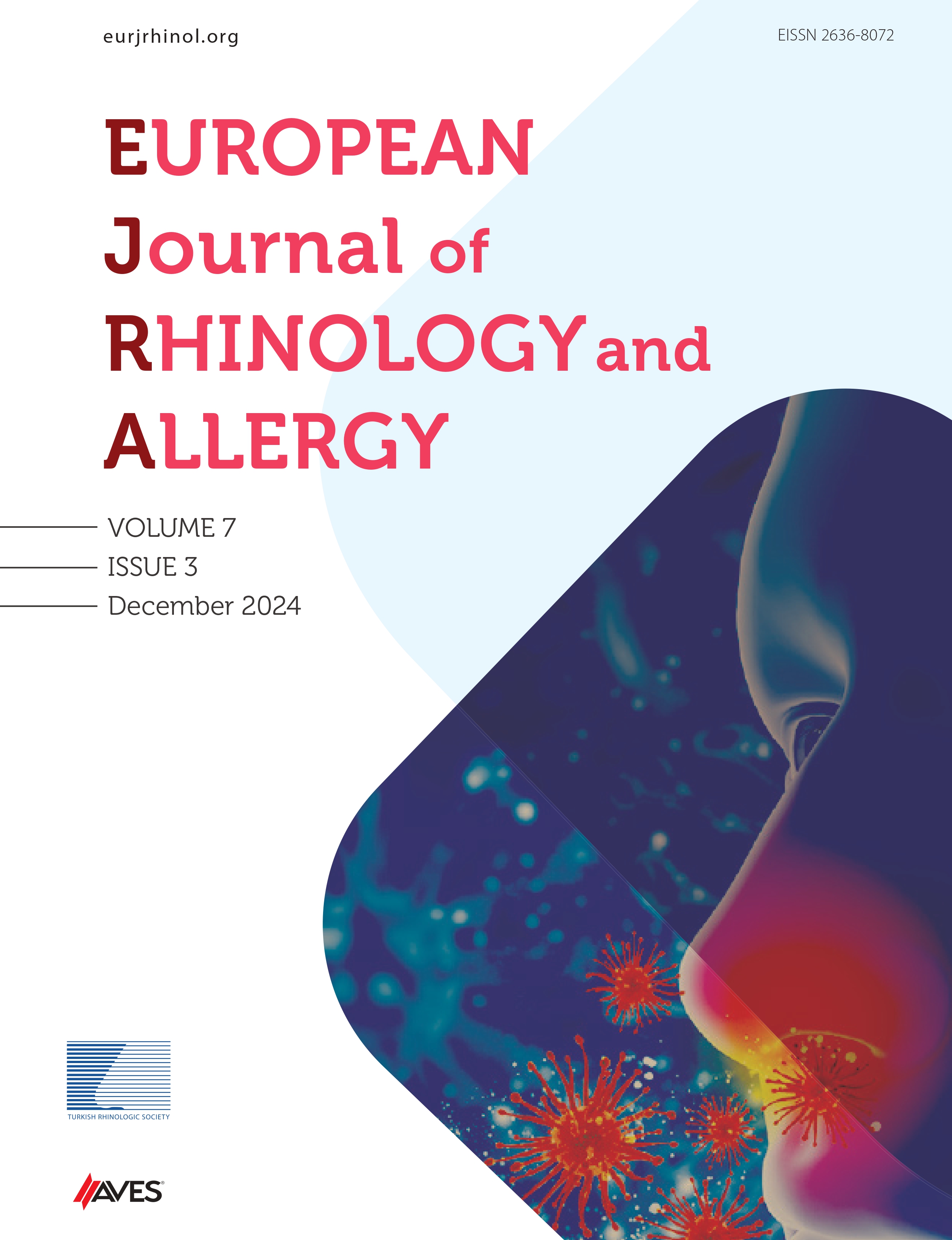Objective: It is hard for Ear nose and throat (ENT) specialists to follow advances on allergic rhinitis, a frequently encountered disease whose pathophysiologic mechanisms are not fully known, due to their busy working conditions. In this study, we aimed to determine the effects of a short-term theoretical course and problem-solving activity on ENT specialists by means of process analysis.
Material and Methods: Otorhinolaryngology-Head and Neck Surgery and Chest Diseases specialists participated in an education program on allergic rhinitis between October 11 and 13, 2019. The program course was designed and implemented to include theoretical courses and practical application. In the practical application of the course, four different scenarios were played by 8 simulated patients. Each participant was asked to conduct a one-to-one interview with simulated patients and to evaluate at least one simulated patient with the details of the examination and test results provided. Before and after the course, participants were asked 15 questions with an equal distribution of the course topics. The aim was to measure the effects of the course on physicians’ knowledge. Simulated patients were asked to complete a questionnaire to evaluate the physicians’ interviews.
Results: Fifty-nine physicians from various provinces and institutions participated in the course. The number of participants in the pre-test was 15, and the number of people who participated in the post-test was 20. The mean number of correct answers given for 15 questions was 10.5 in the pre-test and 9.45 in the post-test. Feedbacks obtained from the simulated patients about the physicians at the end of the course revealed that most of the physicians neither introduced themselves, nor explained the findings of the examination, treatment, the possibility of non-healing, and the side effects of the drugs. They also did not give information about the disease.
Conclusion: Organizing a post-graduate education program and/or meeting, including practical applications and simulated patient evaluation, along with small groups with a small number of participants, will increase the success of the education.
Cite this article as: Özmanevra PT, Özcan M, Haberal Can İ, Özmen S, Ecevit MC. Effect of Short-Term Post-Graduate Education of Physicians on Allergic Rhinitis. Eur J Rhinol Allergy 2019; 2(3): 79-81.

.png)

.png)